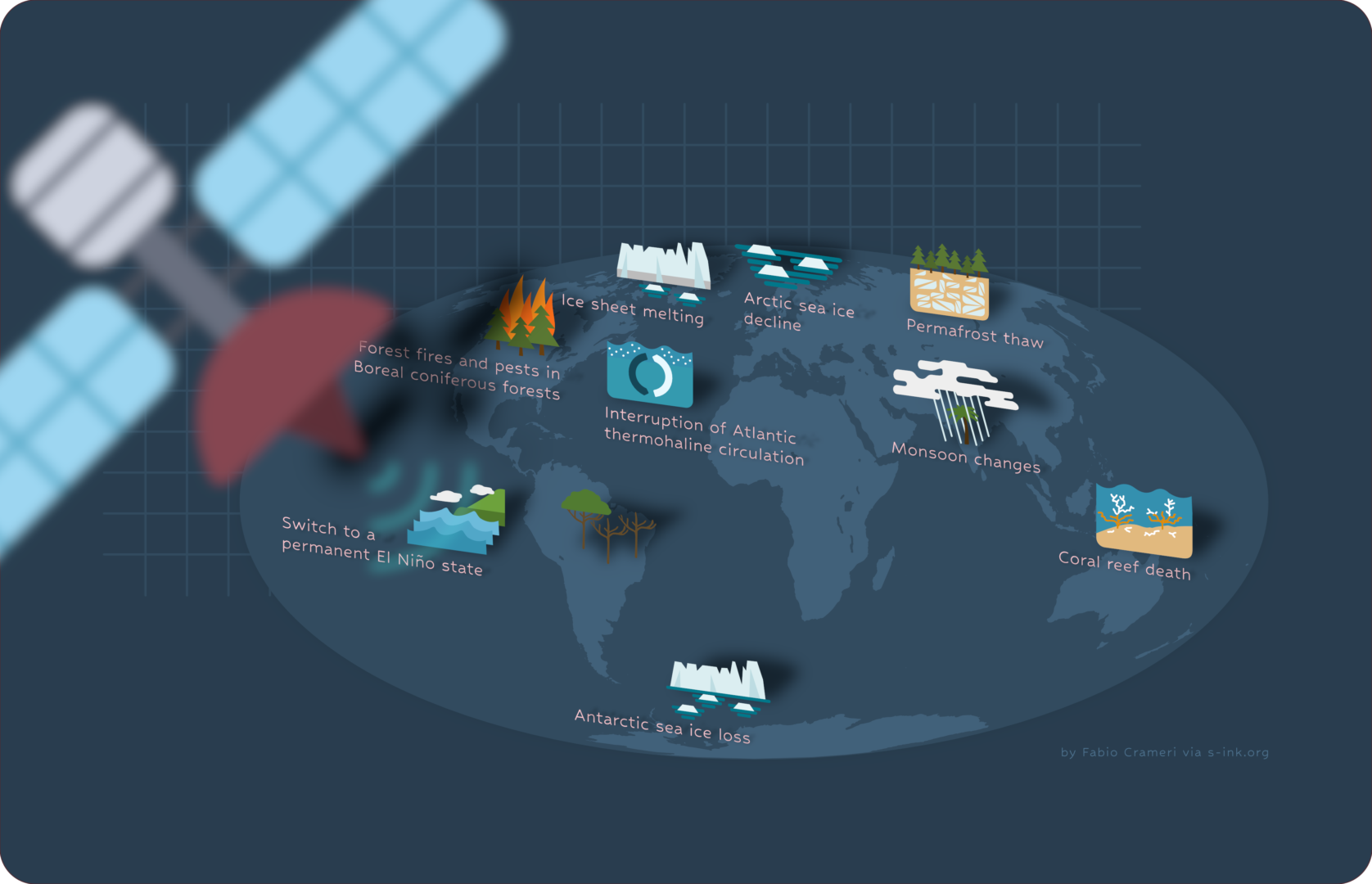ISSI Forum
Observing Earth’s Vulnerabilities
ISSI Forum sparks breakthrough guidance for remote sensing collaborations to monitor climate tipping points
ISSI Forum
ISSI Forum sparks breakthrough guidance for remote sensing collaborations to monitor climate tipping points

Observing potential climate tipping elements following Lenton et al. (2019), where rising global atmospheric temperatures could cause irreversible change to the Earth system. Figure adjusted from s-ink.org/climate-change-tipping-points.
In a thoughtful collaboration, an interdisciplinary group of researchers headed by Professor Tim Lenton at the University of Exeter have published a paper offering crucial insights into how to better understand climate tipping points and the role of remote sensing in detecting and monitoring these critical transitions in the Earth’s system. The paper, originating from a Forum held at the International Space Science Institute (ISSI) in Bern, Switzerland, emphasises the minimum criteria for applying remote sensing data to diverse tipping phenomena.
Remote sensing has already provided vital evidence, from tracking the loss of Antarctic Peninsula ice shelves to revealing alternative stable states in vegetation. By combining Earth Observation data and models, the researchers demonstrate the potential for improved predictions of abrupt events, such as droughts or ecosystem loss, with significant implications for food security and regional policy-making. The collaboration highlights the societal benefits of enhanced information on potential tipping points, offering a roadmap for resilience sensing and early warning to navigate the challenges posed by climate change. The ISSI Forum fostered this cross-disciplinary effort, underscoring the importance of collaborative platforms in advancing climate science.
For more details, access the paper here: Lenton, T.M., Abrams, J.F., Bartsch, A. et al. Remotely sensing potential climate change tipping points across scales. Nat Commun 15, 343 (2024). https://doi.org/10.1038/s41467-023-44609-w
